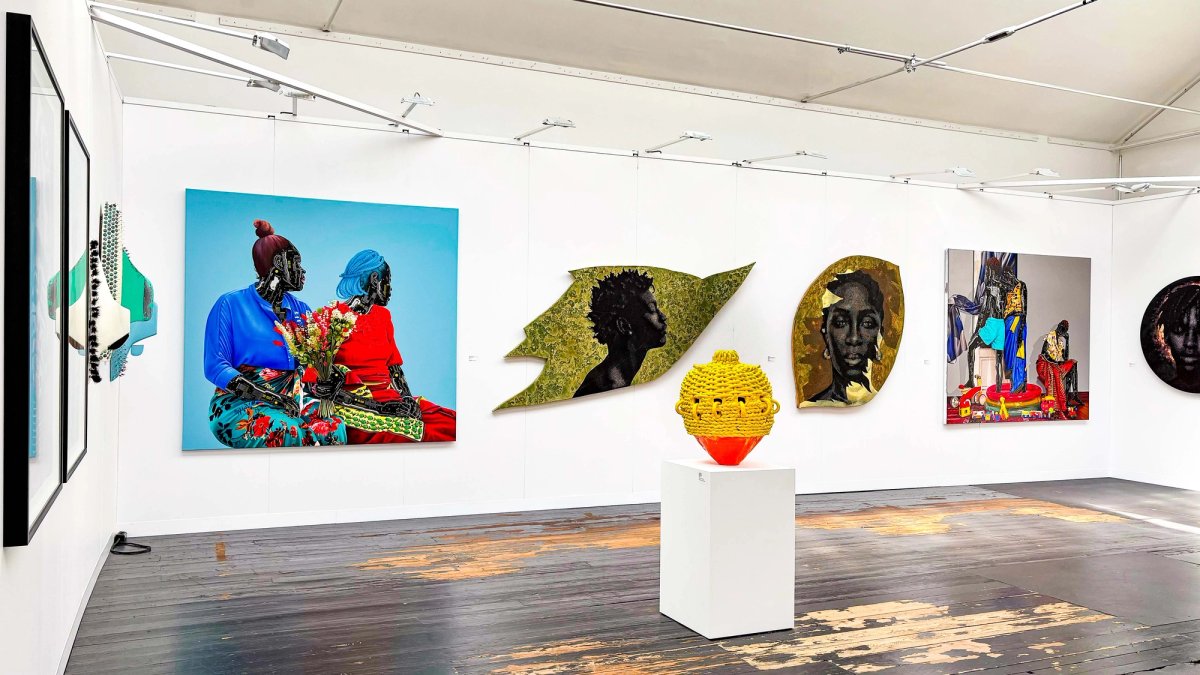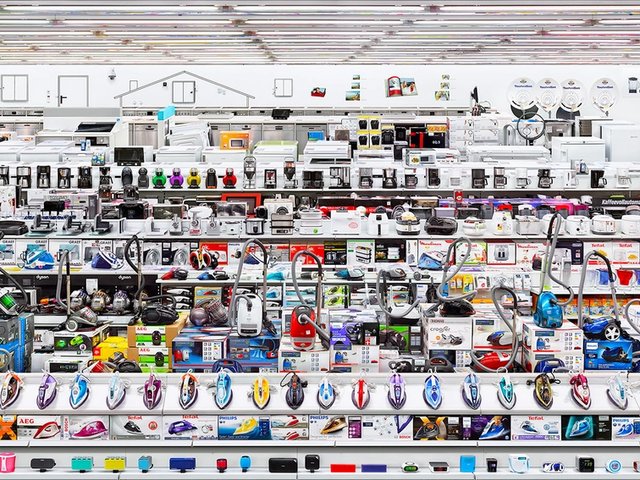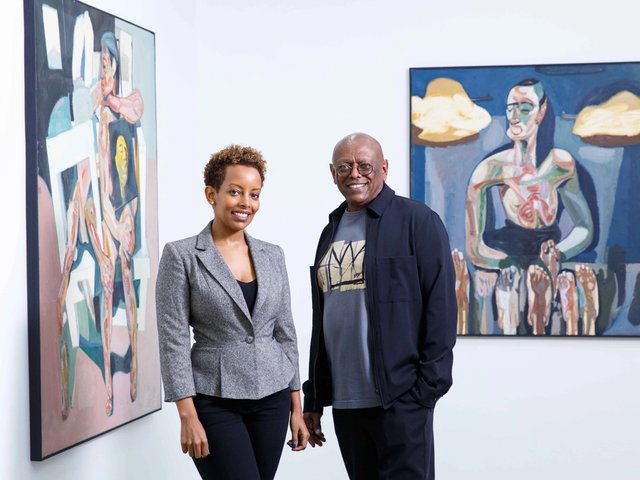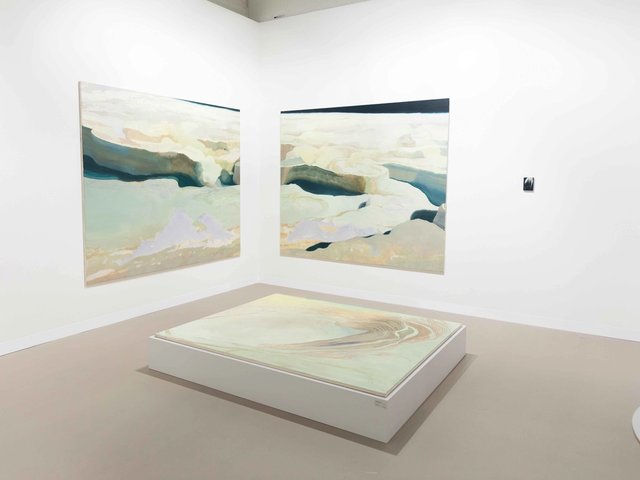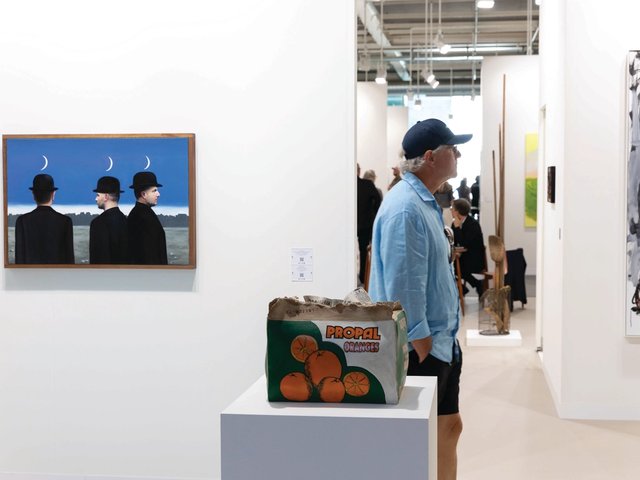The market for contemporary African art has been a subject of considerable focus in recent years, and now it has a dedicated fair in Basel. Africa Basel was founded by the artist Benjamin Füglister and the founding director of Photo Basel, Sven Eisenhut-Hug. It was established as a platform for galleries specialising in art from Africa and its diaspora “that would like to enter the truly global scene”, Füglister says. Conversations with dealers on opening day similarly emphasised the idea that the event’s potential goes beyond the commercial.
The fair, held in a 14th-century building that has previously housed both a printing factory and the Swiss artist Dieter Roth’s studio, brings together a total of 18 galleries, half of which have travelled from Africa.Notable among the participants are organisations whose remit is not exclusively or usually commercial.
Odile Tevie is the director of Nubuke Foundation, a Ghanaian non-profit with a mission to support artists and preserve the nation’s contemporary culture. She explains that one of the reasons Nubuke is taking part in the fair—presenting art by Senam Okudzeto and Kwaku Opoku—is to raise money for this work. “Thankfully, the artists recognised that we need support and gave us generous terms,” Tevie says. “So we’re hoping we can do some sales and recoup that.” Prices range from SFr3,000 to SFr150,000.
Quest for inclusion
Modzi Arts focuses on creating space for artists in Zambia, establishing a gallery to increase its residencies and other activities. Its founder, Ba Taonga Julia Kaunda-Kaseka, says the decision to apply for Africa Basel was about “inclusion, because if you look at contemporary African art, Zambia is not participating in anything. For me, as a curator, it’s important to fight for our position.”
Africa Basel has strengthened other opportunities too. Modzi Art’s stand includes paintings by Mwamba Chikwemba exploring childbirth that—due to their explicit nature—would be either not chosen for an exhibition in Zambia or “put in the corner”, Kaunda-Kaseka says. “As a gallery, we are allowing this conversation to happen.” Each work is available for less than SFr5,000 and, at the time of writing, three had already been sold with a fourth on reserve.
Other exhibitors at Africa Basel range from the Tunisian TGM Gallery, taking part in a fair for the first time, to established venues such as London’s October Gallery and La Galerie 38, which has spaces in Morocco and Switzerland.
Eleri Fanshawe, a curator at October Gallery, emphasises the importance of the fair opening in Basel, home to the “mothership” of art fairs. October is presenting work by seven artists, including the Ghanaian photographer James Barnor and Zimbabwe’s Xanthe Somers, whose hand-woven sculptures reference themes such as women’s labour and the impact of “eco-racism” on makers in her home country. Fanshawe nods to the space Africa Basel provides for showing the “intricacy” of the work coming from the continent and beyond, something that will be amplified by a series of talks taking place throughout the week. October has reported a positive response from collectors to date.
Füglister, meanwhile, is pragmatic about the fair’s place as “the new kid on the block” within the contemporary African art market, which remains buoyant despite a broader market downturn. The galleries come first, he says: “If they’re not with us next year but with Liste or Art Basel, that’s fine with us. We did our job.”


